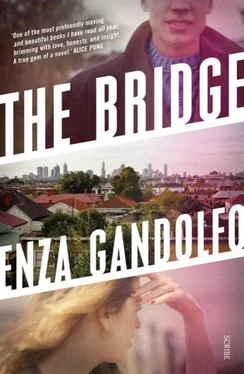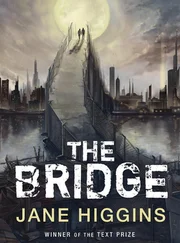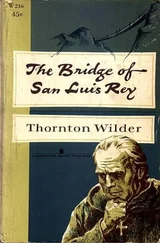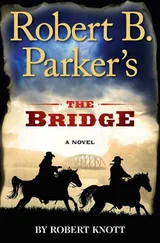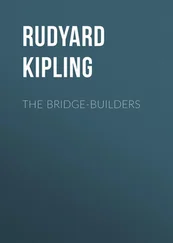They slid, all three of them, into the back seat, Jane in the middle, with her headphones on, eyes on her phone, and her body pressed into her grandmother. Only a few weeks earlier Antonello had asked her why she spent so much time on the phone, and Jane, surprisingly forthcoming, showed him several music and game apps.
At the chapel, the funeral directors led them up the centre aisle to the front pews. Alex and Rae and Jane. Rae’s parents. Antonello and Paolina. And then all of Ashleigh’s aunts, uncles, cousins, and then more people, until the chapel was full.
The coffin was a plain white box, sustainable wood. Antonello was bewildered by Alex and Rae’s ability, in their grief, to think about the planet. The coffin was covered in flowers, including one large wreath of red roses. A selection of photographs of Ashleigh were mounted in frames and sat on a small table next to the coffin. In every one of them she was smiling, a big smile that forced the dimples to go deep into her cheeks. Antonello stared at the photographs and tried not to think about the coffin, about Ashleigh’s body inside, broken and bruised and lifeless. He wanted to remember her living. Alive, laughing, dancing, teasing. He couldn’t shake the wishful part of him, the hope to see Ashleigh running into the church, screaming, It’s a mistake. I’m alive, alive.
Alex sobbed through the service until he got up to speak about his little girl, his first-born — Ashleigh as a toddler he’d spun in the air, as a little girl who loved playing dress-up, who he’d chased in circles around the backyard. He spoke of Ashleigh as if she’d never reached adolescence. Rae had planned to speak too — public speaking was part of her job; every day for thirty years she’d stood in front of hundreds of children, teachers, and parents — but when the time came she didn’t stand up.
There were other speakers. One of Ashleigh’s high-school teachers. Her Aunt Michele, Rae’s oldest sister. No one mentioned Jo or the accident. Rae and Alex had forbidden mention of that girl.
Two days earlier, Alex had said, ‘Rae and I plan to speak at the funeral, but we don’t know if we’ll be able to or what we’ll be able to say. I want you to, Dad — I want you to tell them about my baby.’
It was impossible to refuse. Later, at home, he said to Paolina, ‘Why did they ask me?’
‘Because they think you’re strong. You look strong, Antonello. You look strong.’
The night before, he’d sat at the kitchen table, after Paolina had gone to bed, to write the eulogy. But hours later, the sheet of paper in front of him was covered in small sketches of Ashleigh’s face. The sight of them shocked him. He’d spent his youth drawing. As a child in Vizzini he’d drawn the old stone houses that ran along both sides of the main street; the young women in their bright floral dresses, and the older women in black dresses and scarves, walking up the stone roadways to the market. He’d been good at quick, funny sketches of his friends. At school in Australia, he’d created sketches of his classmates and cartoon characters, of the streets and the houses in his neighbourhood, of the birds that lived in the swamp by the Yarra River or along the creek in Cruickshank Park — especially the rosellas and finches, birds he’d never seen before, with feathers of dazzling colours, but also the seagulls and the crows, which gathered whenever he and his brothers went fishing. His ability to draw had helped him at school. The Australian boys who picked on the wog kids who couldn’t speak proper English didn’t pick on him; instead, they lined up at his desk with their comic books and their demands, and he acquiesced, drawing them pictures of their favourite superheroes. That way he managed to avoid being bullied.
Drawing was something he did; it had been as natural as eating and sleeping, as playing soccer with his brothers after school. His hand taking up the pencil automatically and without hesitation or thought. He sketched without any plan, and the image made itself on the page as if it might have been there waiting, a kind of retracing; a kind of sorcery. And then he’d stopped.
When it was Antonello’s turn to speak, he made his way to the lectern. He hadn’t written a eulogy. On the sheet of paper in front of him were the sketches of Ashleigh: her face, her long hair, her wide eyes. At the bottom of the page there were a couple of dot points — Paolina’s suggestions — Ashleigh’s love of writing, her sense of humour, her determination to be a lawyer like Geoffrey Robertson, whom she’d hero-worshipped since she saw him on a Hypothetical on television. How they were so proud of her, and that she was an attentive granddaughter.
He began. ‘Ashleigh was…’ He couldn’t bear to look up. The chapel was full of friends and family and so many people he didn’t know. The living — many of them old and sick — while his granddaughter was dead. But he told them about the day Ashleigh was born and how both sides of the family rushed to the hospital and filled the waiting room, how excited they were when they saw Ashleigh, the most beautiful baby in the world, and how that only seemed like yesterday. The first-born grandchild. He told them about her sense of fun. About the pleasure she took in reading and singing, in writing and debating, in having a good argument, and in sport — she’d tried everything at least once, he told them, including fencing and judo and horse riding. ‘She was a loving daughter and granddaughter, and a loyal friend,’ he said. And he told them she was a blessing and that he would miss her forever. He planned to say something about forgiveness, to remind them that the dead are dead and the living need to go on living. To remind them that the cliché was true. He wanted to tell Alex and Rae and Jane that if they didn’t move on they wouldn’t be able to build a life worth living. He wanted to shout, ‘And you may as well all be dead too.’ He wanted to tell them not to make the same mistakes he’d made. But when he looked up, he saw Sam, and he stopped mid-sentence. He was sure it was Sam, no doubt, even after all these years. He was older. He’d lost most of his hair. But it was Sam, sitting in the middle of the chapel, his eyes red from crying. And it took all Antonello’s effort not to call out to him, but he did catch his eye for a moment. After that he could muster only the strength to thank everyone for coming, for their support, and make his way back to his seat.
Outside the chapel, Antonello was subsumed in the crowd of mourners. Men shook his hands, women kissed him, unknown hands patted him on the shoulder; friends, acquaintances, cousins he hadn’t seen for decades expressed their sorrow. Strangers cried before him.
And then there was Sam, standing in front of him. ‘I’ve missed you,’ he said and they embraced.
Not wanting to bring attention to herself, Sarah sat at the back of the chapel. She listened to the eulogies: the Ashleigh they spoke about was bright and spirited . A little wild and prone to taking risks, but no one said that directly. Overall, if you believed the stories they told, she was a good kid — kind, considerate. But in Sarah’s experience — and she’d been to her share of funerals now — people didn’t speak ill of the dead, especially when the dead were young.
No one had mentioned Jo, but when Ashleigh’s grandfather said something about friendship during his eulogy, a ripple of whispers had run along the seat in front of Sarah. Not even the celebrant mentioned Jo directly; he spoke about love and forgiveness, about tragedy. He talked about the risky nature of youth and families left devastated.
Outside the chapel, the young girl who had answered the door at Ashleigh’s house, who Sarah assumed was her sister, was standing in the middle of a group of teenagers. A boy gave her a cigarette, and she took it with the confidence of a girl who knew that her parents were no longer watching. Sarah hoped to catch a glimpse of the two girls, Mani and Laura, but their photographs had been kept out of the newspaper and there was no way to distinguish them among the mourners. Moving to the edges of the crowd, where the smokers were gathered, she lit a cigarette.
Читать дальше
